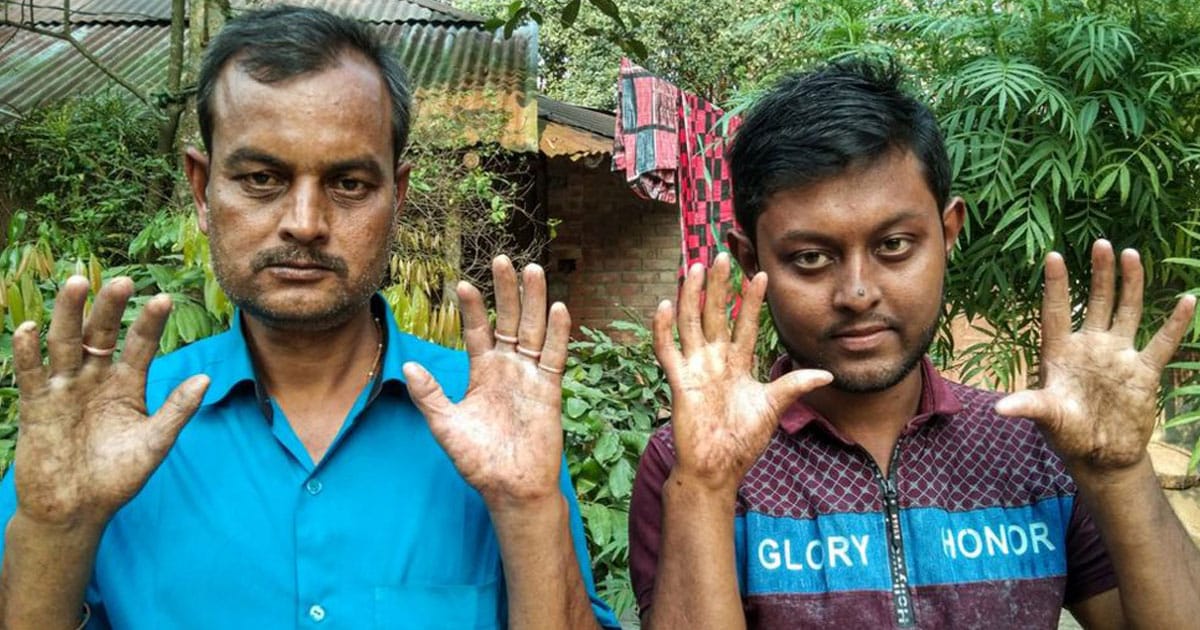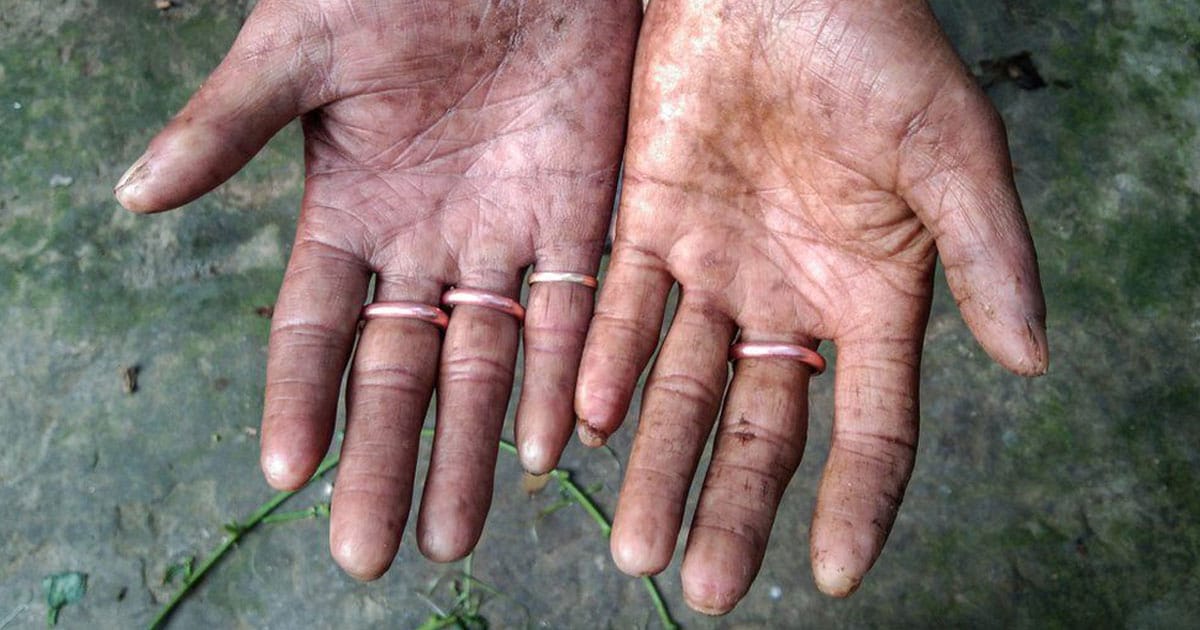It seems that the name Apu doesn’t just stand out for being chosen by Maestro Satyajit Ray for his masterpiece. Perhaps the almighty watched his trilogy and decided to create his own one-of-a-kind version.
We are referring to Apu Sarker, a man from Bangladesh who has no fingerprints. Not only Apu but his entire family does not have the identification marks. The condition is one of the rarest to be seen across the world.
If you look at Apu’s palm, you may not realize the anomaly at first. But as you look closer, you would be startled by the smooth surface of his fingertips.

Sarkar is 22 and lives with his family in a village in the northern district of Rajshahi. His family is originally into farming and Apu served as a medical assistant until a few years back.
About two generations before Apu not having fingerprints was not an issue.
“I don’t think he ever thought of it as a problem,” Apu said speaking in reference to his grandfather to BBC.
As time passed, fingerprints became a quintessential part of one’s identity. From airports to voting to accessing smartphones, the dermatoglyphics became an indispensable part of the biometric data.
Even Bangladesh joined the advancements and introduced National ID cards for all adults in 2008. At that time, the government employees were shocked to learn about Apu and his family’s condition. Finally, they settled for a card with “NO FINGERPRINT” stamped on it for his father, Amal Sarker. Likewise, he had trouble updating other documents – passport and driver’s license. He had to produce a medical certificate to obtain them. But he has never found the courage to use his passport as he fears the problems he may face at the airport. His license is still hanging by the thread.
“I paid the fee, passed the exam, but they did not issue a license because I couldn’t provide fingerprints,” Amal said as he continues to drive without one.
Amal happens to carry the license fee receipt but often gets dragged into paying penalty.
Their issues didn’t end there. As in 2016, the government made it mandatory to match a fingerprint with the national database in order to purchase a Sim card for a mobile phone.
“They seemed confused when I went to buy a Sim, their software kept freezing every time I put my finger on the sensor.” As Apu was denied the purchase, all the male members of his family now use Sim cards issued in his mother’s name.
All this hassle has put Amal Sarker in a guilty state. He is really worried about the troubles that his family faces.
“It is not in my hands, it is something I inherited. But the way I and my sons are getting in all sorts of problems, for me, this is really painful,” he said.

The Government of Bangladesh has issued a new kind of national ID card to Amal and Apu after they presented a medical certificate. This card is also based on biometric data – retina scan and facial recognition. But they still can’t buy a Sim card or get a driver’s license, and obtaining a passport is a long and drawn-out process.
The Sarker family is basically affected by Adermatoglyphia. The rare condition first became widely known in 2007 when Peter Itin, a Swiss dermatologist, was contacted by a woman in the country in her late twenties who was having trouble entering the US. The woman and eight members of her family had the same strange condition – flat finger pads and a reduced number of sweat glands in the hands. Thankfully the genetic mutation appeared to cause no other ill-health effects apart from the effects on the hands. Prof. Itin has humorously dubbed it “immigration delay disease“, after his first patient’s trouble getting into the US, and the name stuck. Immigration delay disease can affect generations of a family.
Apu’s family was examined by a dermatologist in Bangladesh who diagnosed the family’s condition as congenital palmoplantar keratoderma, which Prof. Itin believes developed into secondary Adermatoglyphia – a version of the disease which can also cause dry skin and reduced sweating on palms and feet – symptoms reported by the Sarkers. More testing would be needed to confirm that the family has some form of Adermatoglyphia and Professor Sprecher said his team would be “very glad” to assist the family with genetic testing.
“I am tired of explaining the situation over and over again. I’ve asked many people for advice, but none of them could give me any definite answer. Someone suggested I go to court. If all options fail, then that’s what I might have to do,” said Apu.

